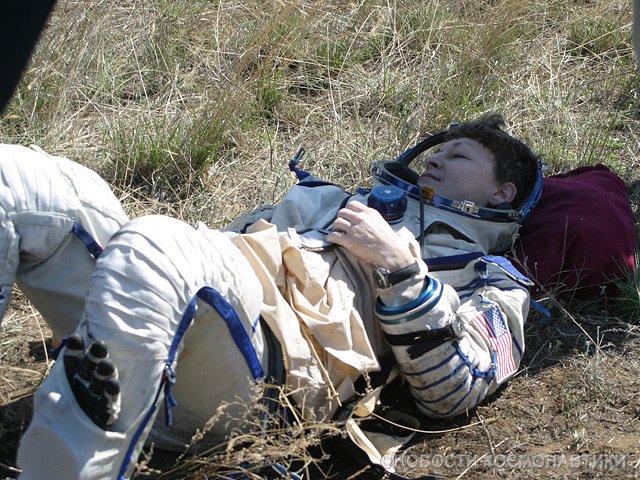|
|
Soyuz Landed 70km Away, Russia
|
Under Peter the Great, Russia was proclaimed an Empire in 1721 and became recognized as a world power. Ruling from 1682 to 1725, Peter defeated Sweden in the Great Northern War, forcing it to cede West Karelia and Ingria (two regions lost by Russia in the Time of Troubles), as well as Estland and Livland, securing Russia's access to the sea and sea trade. On the Baltic Sea Peter founded a new capital called Saint Petersburg, later known as Russia's Window to Europe. Peter the Great's reforms brought considerable Western European cultural influences to Russia.
The reign of Peter I's daughter Elisabeth in 1741–62 saw Russia's participation in the Seven Years War (1756–63). During this conflict Russia annexed Eastern Prussia for a while and even took Berlin. However, upon Elisabeth's death, all these conquests were returned to Kingdom of Prussia by pro-Prussian Peter III of Russia.
Catherine II (the Great), who ruled in 1762–96, presided over the Age of Russian Enlightenment. She extended Russian political control over the Polish-Lithuanian Commonwealth and incorporated most of its territories into Russia during the Partitions of Poland, pushing the Russian frontier westward into Central Europe. In the south, after successful Russo-Turkish Wars against the Ottoman Empire, Catherine advanced Russia's boundary to the Black Sea, defeating the Crimean Khanate. As a result of victories over the Ottomans, by the early 19th century Russia also made significant territorial gains in Transcaucasia. This continued with Alexander I's (1801–25) wresting of Finland from the weakened kingdom of Sweden in 1809 and of Bessarabia from the Ottomans in 1812. At the same time Russians colonized Alaska and even founded settlements in California, like Fort Ross.
In 1803–06 the first Russian circumnavigation was made, later followed by other notable Russian sea exploration voyages. In 1820 a Russian expedition discovered the continent of Antarctica.
|
|









